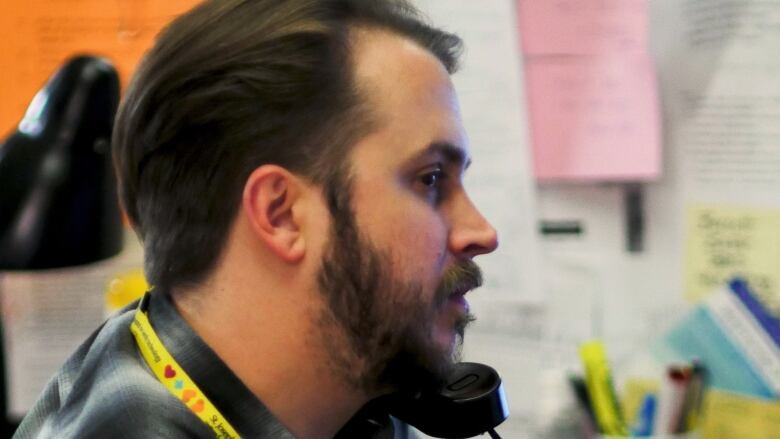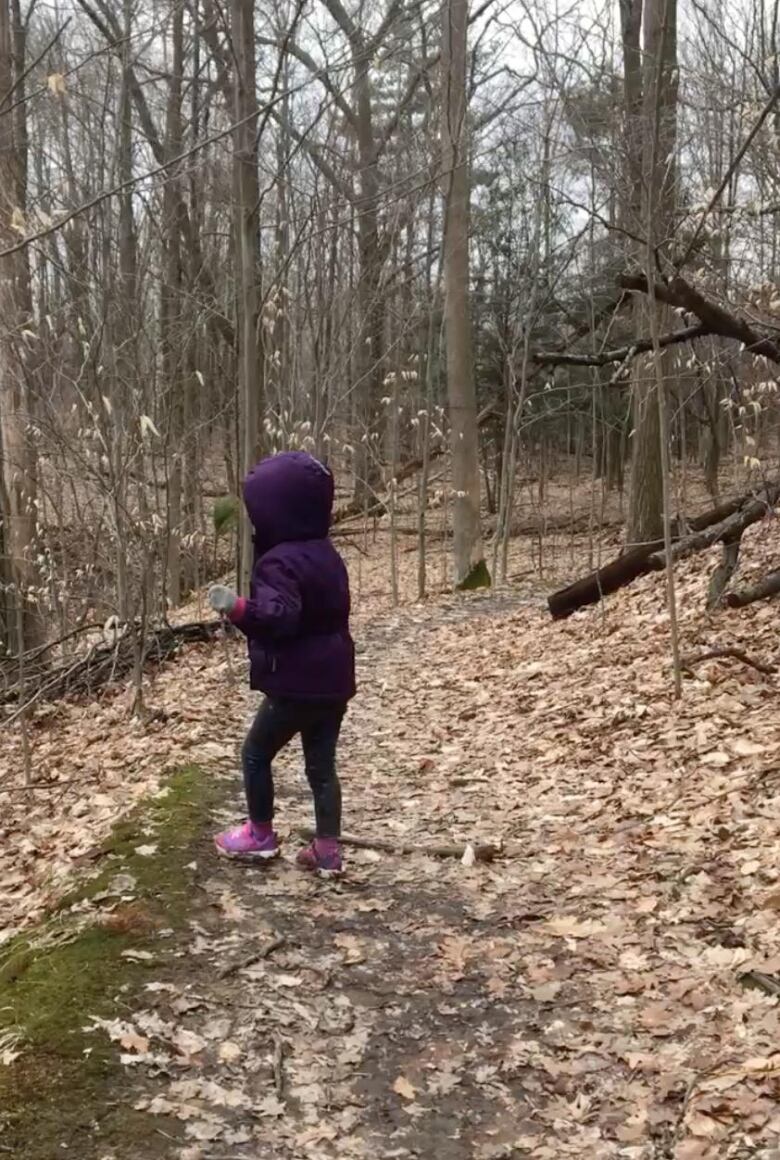More than half of the city's mental health crisis calls have been about COVID-19
I think the impacts are going to be profound and long lasting

In the last week, more than half of the mental health calls Bart Campbell answeredthrough the city's crisis outreach and support hotline are related to COVID-19.
It's been nearly two weeks since schools and local services shut their doors to slow the spread of COVID-19 in Hamilton and people hereare still trying to cope with the uncertainty. Campbell and his colleagues are getting 25 per cent more calls than they usually would, taking nearly 130 calls a day.
"Every day, people are trying to figure it out...we've never been here before," said Campbell, a triage support worker for the crisis outreach and support team, known as COAST.
COAST is a partnership between St. Joseph's Healthcare Hamilton, Hamilton Police Services and Halton Regional Police Services. When locals dial in, trained officers and mental health workers at St. Joseph's help to identify the person's mental health concerns, their situation and any risks.
During this time of isolation and doubt, Campbell says most people are expressing anxiety, depression, anger and resentment.
Many people are anxious about contracting the virus, while others are experiencing a period of depressionas they can no longer go about their daily routines, Campbell said.Others are finding themselves in tight financial situations, facing job loss and going days without social interaction.
"We're not allowed to do the things that we normally do to help with our mental health," Campbell said, adding that coping strategies like going to the gym or being social with friendsare no longer available.
To de-escalate a crisis call, Campbell said he empathizes, validates people's feelings and assures them thatit's not uncommon to feel offgiven what's happening.
One call thatCampbell can't shake was from a person who didn't know where to go because their family didn't want them coming home out of the fear that they would bringthe virus into the household.
"It's really concerning and kind of sad when, in the midst of this situation, (people are saying) 'stay away from us,'" he said.
In the last week the number of calls have "skyrocketed," said COAST manager Satar Wahidi, adding that since March 13, they have taken 469 calls, not including repeat clients. About 30 per cent of those calls were people who were reaching out to the service for the first time.As of noon Thursday, the service began tracking calls specifically related to the virus.
On Friday, COAST added a fourth crisis line to manage the increased demand.
Ramping up mental health efforts
Those at Hamilton's Canadian Mental Health Association (CMHA) are also feeling the strain as they have seen a noticeable increase inincoming calls.
The team has also been actively reaching out to check in on their usual clients.
"I can foresee it really becoming a greater need as time goes on," said CMHA Hamilton's CEO Sue Phipps. "I think the impacts are going to be profound and long lasting for all people for various reasons."
Both Phipps and Wahidi said that it's not just people with pre-existing mental health conditions who are reaching out, it's everyone even front line healthcare workers.
"There are more people who typically wouldn't be reaching out because they're (usually) wellthat are finding this to be very, very difficult," Phipps said.
Other local services are doing what they can to help, such as Therapy Centre, a private psychology practice,offering free online weekly workshops facilitated by the centre's clinicians.
Loss of hiking trails & conservation areas
As of Wednesday, Hamilton Conservation Authority and Conservation Halton closed their outdoor spacesto the public due to high volumes of people.
Both organizations said people were disregarding the physical distance recommendations from public health which posed a risk to everyone's well-being.
For Claire Calnan, a single-mom to a four-year-old daughter, the loss of greenspace was devastating.
"I don't know if they have a sense of the damage that it does," Calnan said, adding that when she questioned Hamilton Conservation Area's decision to close, they told her they were not an essential service.
"I would argue that that is essential," Calnan said. "It's very healing to be in a green space and just have fresh air..."
Phipps agreed that the loss of green-space will be "challenging," but she said it's important to find other ways to connect with nature, like caring for plants or watching the nature channel.

The trails offered Calnan a way to deal with her loss of work and social activities, while allowing her daughter to "just (be) a kid again."
Calnan says her mental health is "up and down, I'd say day byday.There's a lot of fear and anxiety around this...so yeah just trying to find ways to cope."












_(720p).jpg)


 OFFICIAL HD MUSIC VIDEO.jpg)
.jpg)



























































































